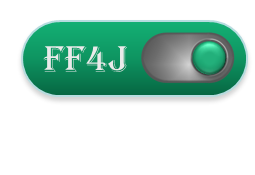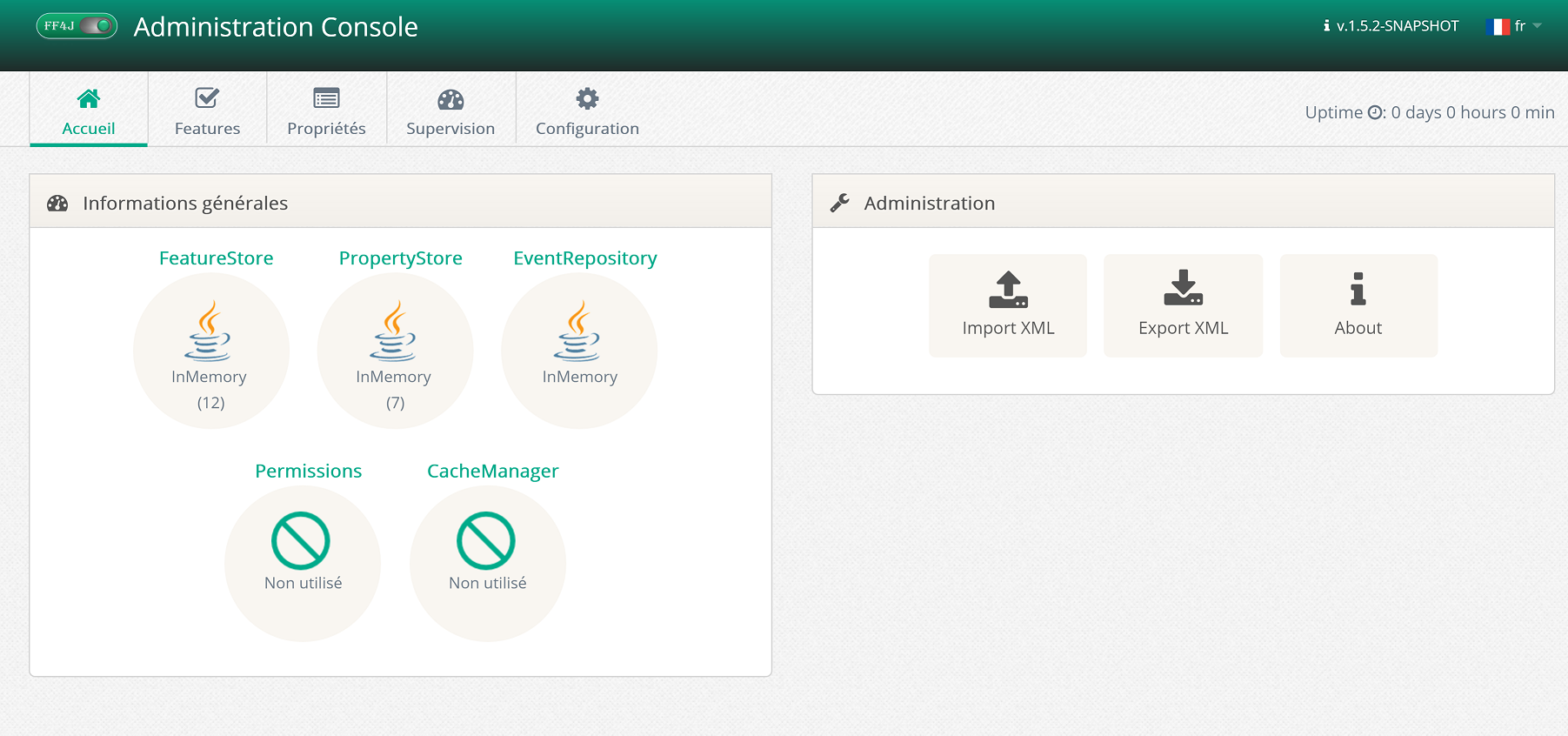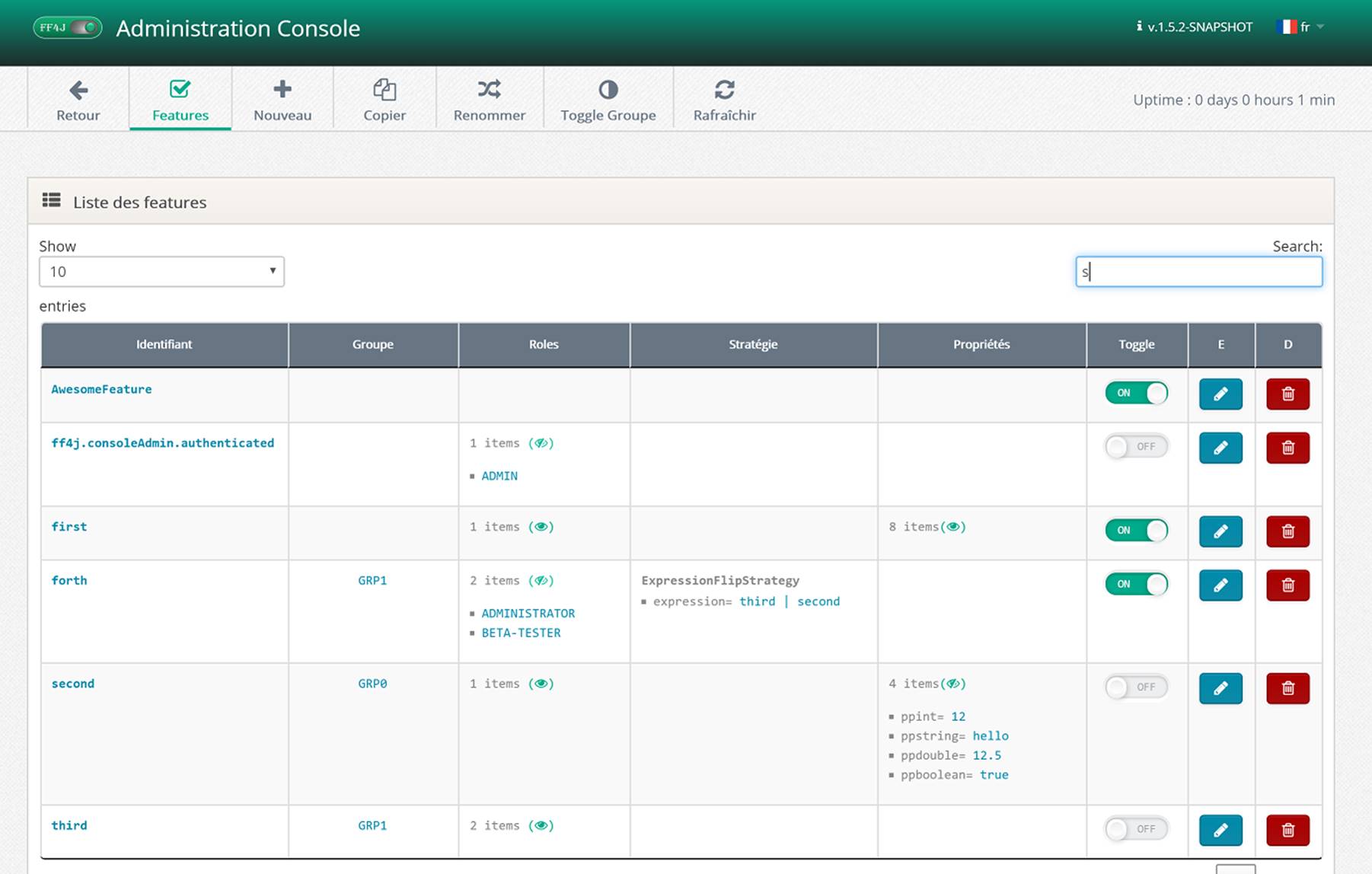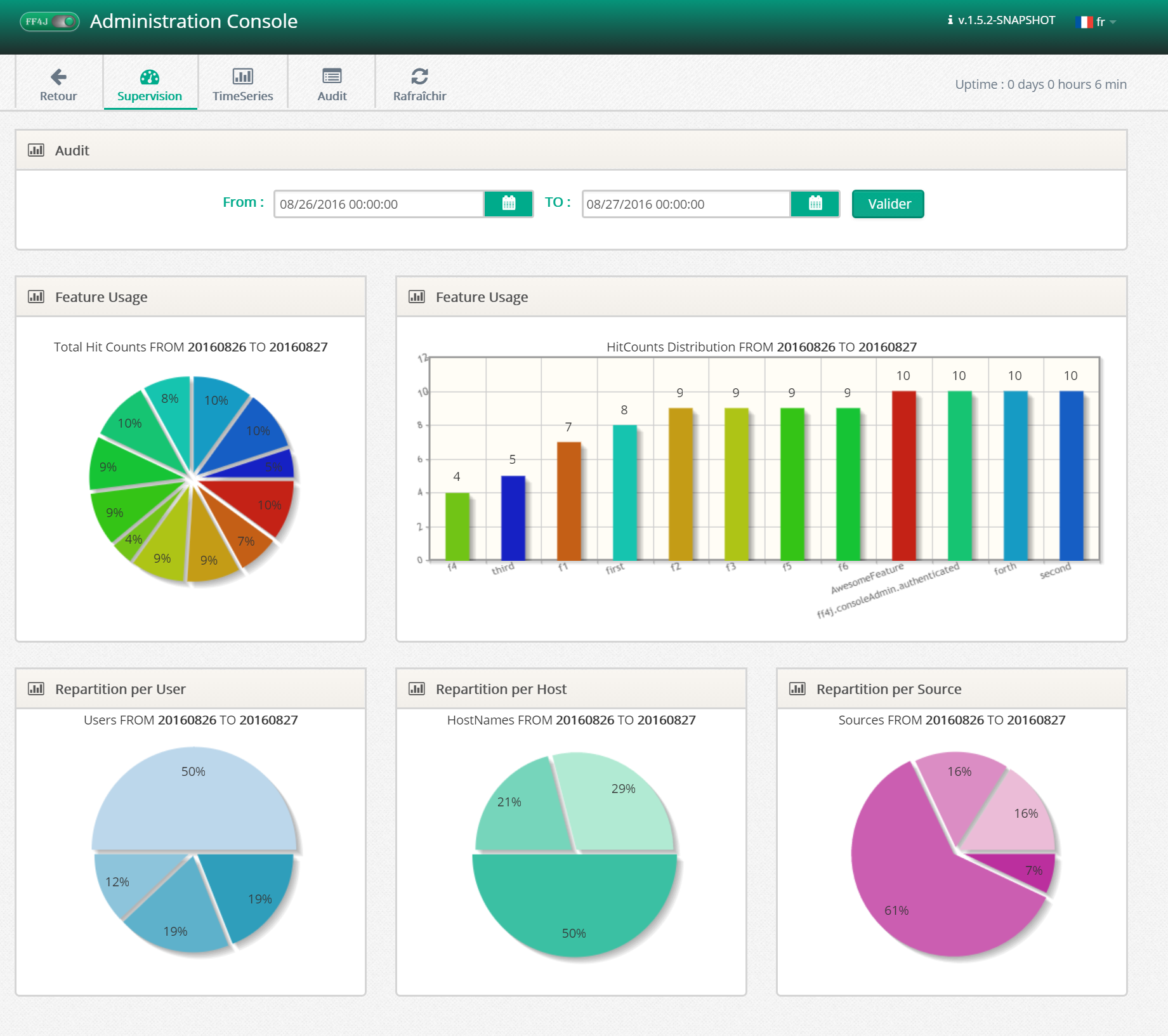FF4j is an implementation of Feature Toggle pattern.
-
Feature Toggle: Enable. and disable features at runtime - no deployments. In your code implement multiple paths protected by dynamic predicates (if/then/else).
-
Role-based Toggling: Enable features not only with flag values but also drive access with roles and groups (Canary Release). Different frameworks supported starting by Spring Security.
-
Strategy-based Toggling: Implement custom predicates (Strategy Pattern) to evaluate if a feature is enabled. Some are provided out of the box: White/Black lists ,Time based, Expression based. Connect external source like a Drools rule engine.
-
AOP-driven Toggling: Keep your code clean and readable: Avoid nested if statements but use annotations. Thanks to Spring AOP target implementation is pick at runtime, and thus driven by feature statuses.
-
Features Monitoring: For each features execution, ff4j evaluates the predicate therefore it's possible to collect and record events, metrics to compute nice dashboards or draw curves for features usage over time.
-
Audit Trail: Each action (create, update, delete, toggles) can be traced and saved in the audit trail for troubleshooting. With permissions management (AuthorizationManager) it's possible to identify users.
-
Web Console: Administrate FF4j (including features and properties) with the web UI. Packaged as a servlet in the library you will expose it in your backend applications. Almost 10 languages available.
-
Wide choice of Databases Our proud: we support 20+ databases technologies to store your features, properties and events. Same business model, multiple implementations. Thanks to extension points it's easy to build your own.
-
Spring Boot Starter Import ff4j-spring-boot-starter dependency in your microservices to get the web console and rest api working immediately. (To be used for the backend app. Now compliant with Spring Boot 2x: 👉 SAMPLES
-
REST Api Operate FF4j through a WEB API. This is the way to go to use ff4j with others languages, specially javascript frontends.(also: leverage on FeatureStoreHttp to avoid microservices to directly connect to the DB.
-
Properties (CMDB) Store not only feature statuses but any property value.. Create properties you can change at runtime . It is integrated with most used frameworks like Spring, Archaius, commons-config or Consul.
-
(Distributed) Cache Evaluating predicates may put pressure on DB (high hit ratio). ff4j provides local and distributed caches to help. (edit feature also evict cache). Leveraging JSR-107 it supports most of cache solutions.
-
Command Line Interface To automate things or because web ports may be blocked (you know, production...) you can work through SSH using our Command Line Interface (cli), our Shell #devOps. It will interact directly with storages.
-
JMX and MBeans Limited set of operations can be performed through JMX. ff4j exposes some Mbeans to read metrics or toggle features from external tools (Nagios...). Not all applications are web based.(batches, shell, standalone...)
More information can be found at ff4j.org or Reference Documentation in the wiki.
This project exists thanks to all the people who contribute. [Contribute].
Thank you to all our backers! 🙏 [Become a backer]
Support this project by becoming a sponsor. Your logo will show up here with a link to your website. [Become a sponsor]





